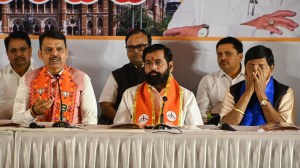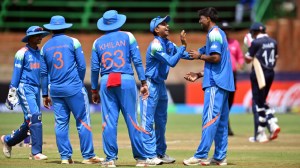Already?
An increasing number of Indian women attain menopause before 40 years. Doctors say early menarche,family planning and lifestyle changes may be the reasons
Over the past few years,doctors in the West and in India have been reporting advancement of menarche first menstruation in an adolescent girl,linking it to improved access to nutrition and other lifestyle-related factors. Indian gynaecologists have started waking up to a new reality menopause in Indian women has also been advanced,occurring sometimes in women as young as 25.
Menopause in the 20s is an aberration,doctors say,but between the ages of 35 and 45 years,it is a cause for concern because the textbook age for menopause is between 45 and 55 years.
Menopause is the defined as the time in a womans life when her periods menstruation eventually stop and her body goes through changes that no longer allow her to get pregnant. It is associated with reduced bone health,hot flushes,sleeping problems etc,apart from psychological implications which may at times extend to extreme forgetfulness. Reduced bone health is seen post-menopause because estrogen production falls dramatically. Estrogen is a key hormone in suppression of physiological processes that break down bone cells. Menopause can happen naturally or because of surgical removal of female reproductive organs hysterectomy as is required to treat diseases like cancer.
A 2005 study analysing data from the National Family Health Survey 2,done by the Institute of Social and Economic Change,Bangalore,was ignored even though it had come up with shocking figures for the Indian woman. These were way above estimates of one in 20 women who,western experts say,experience early menopause.
The study by T Syamala,published in the Economic and Political Weekly,found that 3.1 per cent of Indian women are already in menopause in the 30-34 age group. This rises to 8 per cent for the age group of 35-39 with the incidence of menopause being quite rapid after the age of 40-41. By 48-49 years,two-thirds of women had gone into menopause. The study found significant state-wise variations.
Doctors admit that there is a dearth of awareness about the medical needs of post-menopausal women and almost no institutional infrastructure in rural areas to tackle them. Health administrators give little attention to the latter and doctors still struggle without authentic medical literature on incidence of premature menopause in Indian women.
Early menopause,says Dr Shakti Bhan Khanna,consultant gynaecologist at Indraprastha Apollo Hospital,is intimately linked to early menarche as the number of eggs in a woman is fixed. That figure is linked to the number of menstrual periods a woman undergoes because the uterus lining would prepare for implantation of the embryo only when ovulation has occurred. If implantation does not happen within approximately two weeks of ovulation,that lining will bleed out of the body menstruation. Available medical literature suggests the number of mature eggs in a woman at the time of menstruation is around 400.
I have seen menopause in women as young as 25 years old. Many women have early menarche and an increasing number are undergoing infertility treatment,which involves medications to produce make mature more eggs to increase chances of fertilisation. This would mean that more eggs are lost per cycle and can trigger early menopause. There are genetic factors too. The daughter of a woman who had menopause in her 30s is more likely to do so around the same age,although it would not apply if the reason for menopause in the mother was hysterectomy, explains Dr Khanna.
Increased family planning too has changed the menopause landscape,says Dr Mala Srivastava,consultant gynaecologist at Sir Ganga Ram Hospital. Earlier women used to have many children some had seven or more. That would cause many eggs to be conserved because women do not menstruate during pregnancy. So the mother would retain reproductive ability for longer. On the other hand,nowadays women have two babies at most. So they exhaust their eggs earlier. There are other lifestyle issues like smoking,which may trigger premature menopause, she says.
Till recently,there was a trend of prescribing hormone replacement therapies for post-menopausal women. That has died down following a series of studies linking it to cardiovascular risks and even breast cancer. Now,there is increasing emphasis on moderate medication and the focus is on diet and lifestyle changes like reduction of spicy foods and caffeine; and exercise. Calcium and vitamin D in diet improves bone health.
- 01
- 02
- 03
- 04
- 05































